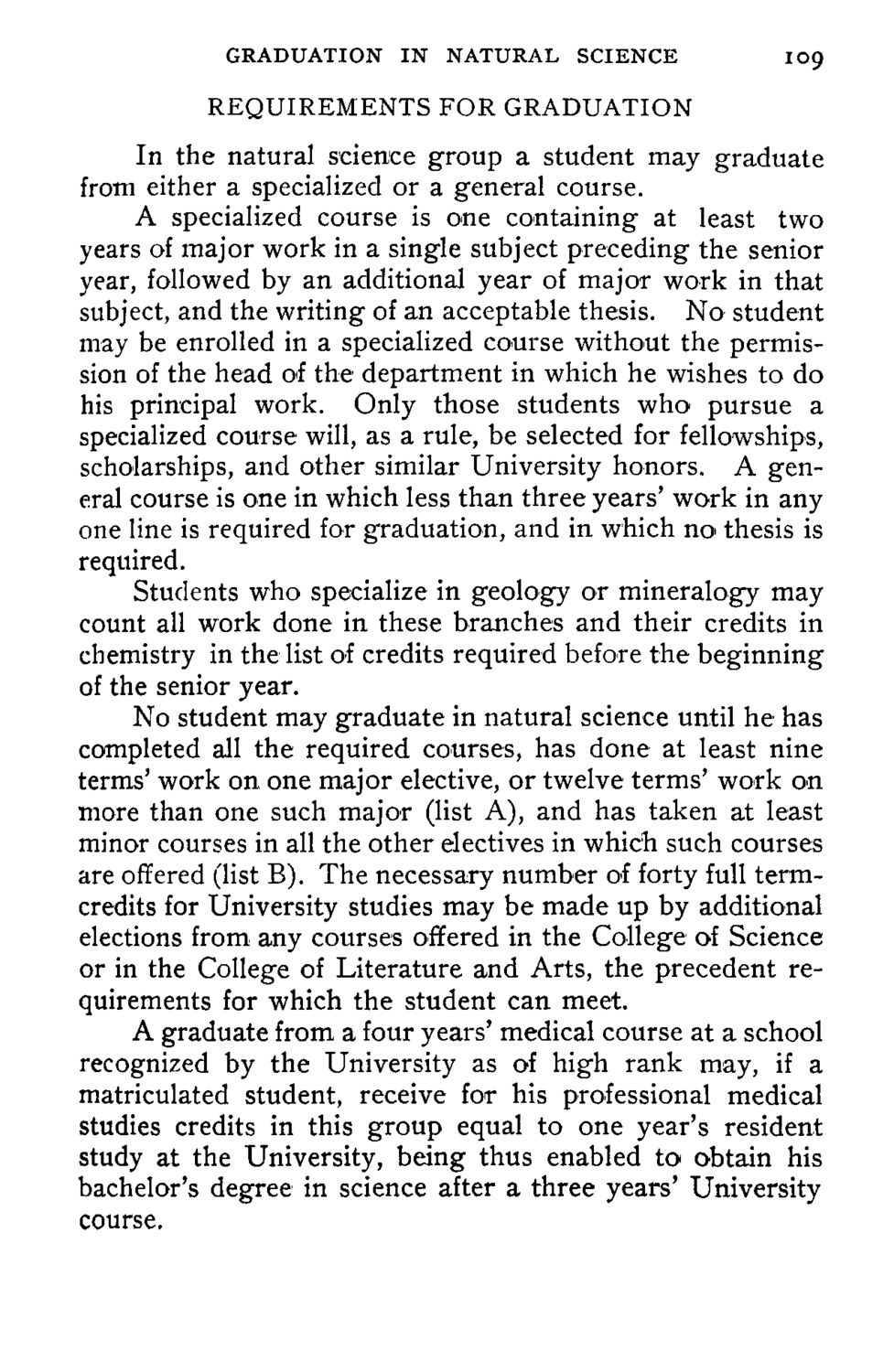| |
| |
Caption: Course Catalog - 1897-1898
This is a reduced-resolution page image for fast online browsing.

EXTRACTED TEXT FROM PAGE:
GRADUATION IN NATURAL SCIENCE 109 REQUIREMENTS FOR GRADUATION In the natural science group a student may graduate from either a specialized or a general course. A specialized course is one containing at least two years of major work in a single subject preceding the senior year, followed by an additional year of major work in that subject, and the writing of an acceptable thesis. No student may be enrolled in a specialized course without the permission of the head of the department in which he wishes to do his principal work. Only those students who pursue a specialized course will, as a rule, be selected for fellowships, scholarships, and other similar University honors. A general course is one in which less than three years' work in any one line is required for graduation, and in which no thesis is required. Students who specialize in geology or mineralogy may count all work done in these branches and their credits in chemistry in the list of credits required before the beginning of the senior year. No student may graduate in natural science until he has completed all the required courses, has done at least nine terms' work on one major elective, or twelve terms' work on more than one such major (list A), and has taken at least minor courses in all the other electives in which such courses are offered (list B). The necessary number of forty full termcredits for University studies may be made up by additional elections from any courses offered in the College of Science or in the College of Literature and Arts, the precedent requirements for which the student can meet. A graduate from a four years' medical course at a school recognized by the University as of high rank may, if a matriculated student, receive for his professional medical studies credits in this group equal to one year's resident study at the University, being thus enabled to obtain his bachelor's degree in science after a three years' University course.
| |